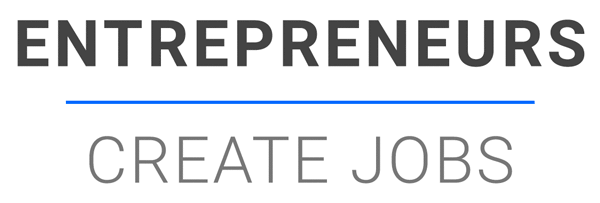Inequality by Way of Government
This article was originally published in the Wall Street Journal.
By Andy Kessler
March 28, 2021
Often when I make the case for free-market capitalism, I’ll get a head nod or two and then the inevitable comeback: “Yeah, but inequality.”
Forget all the great things that capitalism has done, the smartphones we carry, the broadband we use to stream movies, the drugs and vaccines that extend lives. Forget those who hold back consumption to fund or invent stuff that brings the masses out of poverty. Because Jeff Bezos had the audacity to get rich for his efforts, he gets pushback. All that technology and red-meat capitalism comes at a great societal cost, critics say. People with smartphones are living below the poverty line. Capitalism is broken and needs to be reformed. We need a new, fairer system.
Oh, we’re getting one, good and hard. (See: stimulus, $1.9 trillion plus another $3 trillion coming up.) John Cochrane, an economist and senior fellow at Stanford’s Hoover Institution, tells me inequality is raised frequently as a nasty symptom of some alleged disease of capitalism. “Not so fast,” he warns. “Are capitalism and free markets the reasons for income inequality? Or are misguided government interventions to blame?” He quickly rattles off poor schools, occupational licensing, land-use rules, and disincentives to work as examples of things that keep people down—an “opportunity gap.” Let’s call them the Four Progressive Horsemen of Inequality.
Public schools are controlled by teachers unions. Covid proved that. Forget learning; they push students along to graduation rather than teach them the skills to capture life’s opportunities. We know public schools have failed because more than half of new students at community colleges require remedial courses in math, English or both. Then consider those who don’t attend college. American Federation of Teachers President Randi Weingarten collects Grade-A compensation—$500,000 a year—but has failed students. The average Chicago public-school teacher made $108,000 last year in salary and benefits. Illinois State Rep. Blaine Wilhour put it best: “The teachers union has become the biggest obstacle to upward mobility and to breaking the cycle of poverty for poor and minority students.”
Occupational licensing is a nice way to say job restriction. Around 1,100 occupations, involving close to a quarter of U.S. workers, require licenses. For doctors and lawyers this might make sense, but for many low-skilled jobs, it’s a huge barrier and a root of inequality. Hair braiding in Mississippi used to require 300 hours of training and a license in “wigology” until workers fought back. It’s now a $25 fee. Needing a license to be a pedicurist, a home inspector, a security-alarm technician, a pipe-fitter and so on is putting entry-level opportunities out of reach. California’s A.B.5 foolishly restricted freelancers, the so-called gig economy. In Washington, D.C., the House just passed the pro-union PRO Act to repeat this mistake at the national level. Can’t they see this perpetuates inequality?
Land-use restrictions might actually be a bipartisan effort to drive up home prices—the rules keep housing supply from keeping up with demand—but progressives have been heaping on regulations. Try getting a natural-gas hookup in many California cities. The California Energy Commission’s solar mandate adds $9,500 to the cost of the average new home. And don’t try using your own kitchen to sell cupcakes or creole. You’ll run into a goats-head soup of restrictive laws.
Welfare disincentives were supposed to disappear with Bill Clinton’s ending “welfare as we know it.” Well, they’re back. The stimulus extended the usual unemployment benefits plus $300 a week (down from $600) and $300 a month for child support. Why work?
Beyond these Four Horsemen, plenty of other progressive programs perpetuate opportunity gaps. Mr. Cochrane cites free opioids. The minimum wage is another. In February, the Congressional Budget Office said a $15 minimum would mean 1.4 million fewer jobs, mostly hurting those at the bottom of the ladder. But union lackey Bernie Sanders still pushes for it. Milton Friedman said it best: “Minimum wage law is most properly described as a law saying employers must discriminate against people who have low skills.”
More government interventions in free markets? The financial crisis brought us “too big to fail,” meaning fewer small banks to lend to local businesses. Farm subsidies destroy small farms. Think of how gas-mileage, emissions and safety overkill make cars more expensive.
Green initiatives like ethanol mandates raise energy costs. Renewables subsidies are hidden in electric bills. Meanwhile, jobs move out of California, especially the Inland Empire east of Los Angeles, to Nevada and Arizona. Those left behind pay the price. Now you know why the Biden administration speaks of “equity”: Its policies squash opportunity.
The Barack Obama era of economic ineptitude lives on. Remember his May 2010 quote: “The true engine of economic growth will always be companies like Solyndra.” Maybe that’s the Fifth Progressive Horseman of Inequality.
